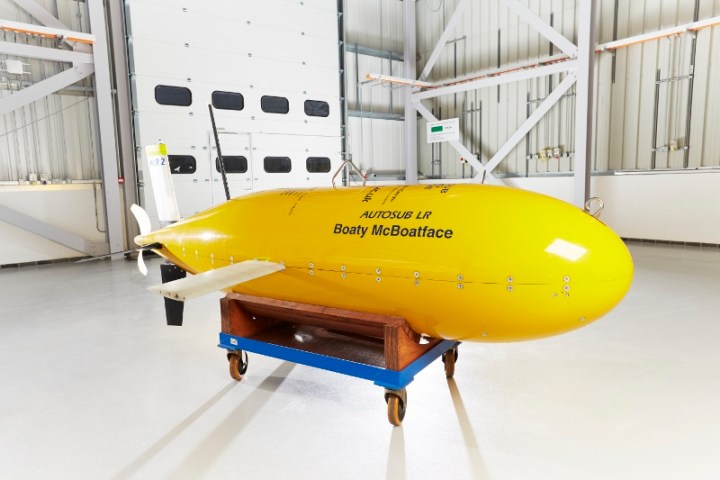
As you may recall, the bizarre moniker was the result of a public campaign launched last year by the United Kingdom’s Natural Environment Research Council (NERC) to choose a name for its gleaming new 200 million-pound (about $243 million) polar research ship.
The NERC had encouraged “inspirational” suggestions linked to “environmental and polar science, to help us tell everyone about the amazing work the ship does.”
But the council clearly hadn’t accounted for the Brits’ sometimes bonkers humor, with one particular name — Boaty McBoatface — attracting far more votes than any other choice offered in the online poll.
Other suggestions included Onion Knight, I Like Big Boats & I Cannot Lie, and It’s Bloody Cold Here.
Clearly horrified at the thought of having to give its lovely new vessel such a daft name, the NERC reminded everyone that it would have the final say. After some thought, it ended up naming the ship after a British naturalist and broadcaster — a man with the far more sensible name of David Attenborough — who placed fifth in the poll. However, not wanting to completely disregard the people’s carefully considered choice, the council said it’d give the absurd Boaty name to the ship’s robot sub instead.
Boaty gets to work!
This week Boaty McBoatface begins its maiden mission aboard the the British Antarctic Survey research ship RRS James Clark Ross, which the RRS Sir David Attenborough will replace in 2019.
The autonomous underwater vehicle is a 3.62-meter-long, 700-kg “autosub” capable of traveling under ice at depths of up to 6,000 meters. Data gathered by Boaty will be sent back to scientists on the ship via a radio link when the sub periodically surfaces.
“Boaty and similar autonomous vehicles will help oceanographers investigate the processes driving change in the polar regions, including the extent of the ice melt, and conduct a range of research in the Arctic and Antarctic oceans without the need for the constant presence of a research ship,” NERC explains on its website.
In the coming years, Boaty is expected to attempt the first-ever crossing of the Arctic Ocean under ice, a mission that “has the potential to deliver a step-change in scientists’ ability to observe change in this vital region.”
The advantage of the sub’s silly name is that it’s helped to generate publicity for oceanographer’s work far beyond what they could’ve imagined before the public campaign started.
The U.K.’s National Oceanography Centre has even come up with a cartoon version of Boaty McBoatface to get kids interested in marine research, and, according to the Guardian, is also creating a large inflatable of Boaty that’ll publicize its work at special events around Britain.


